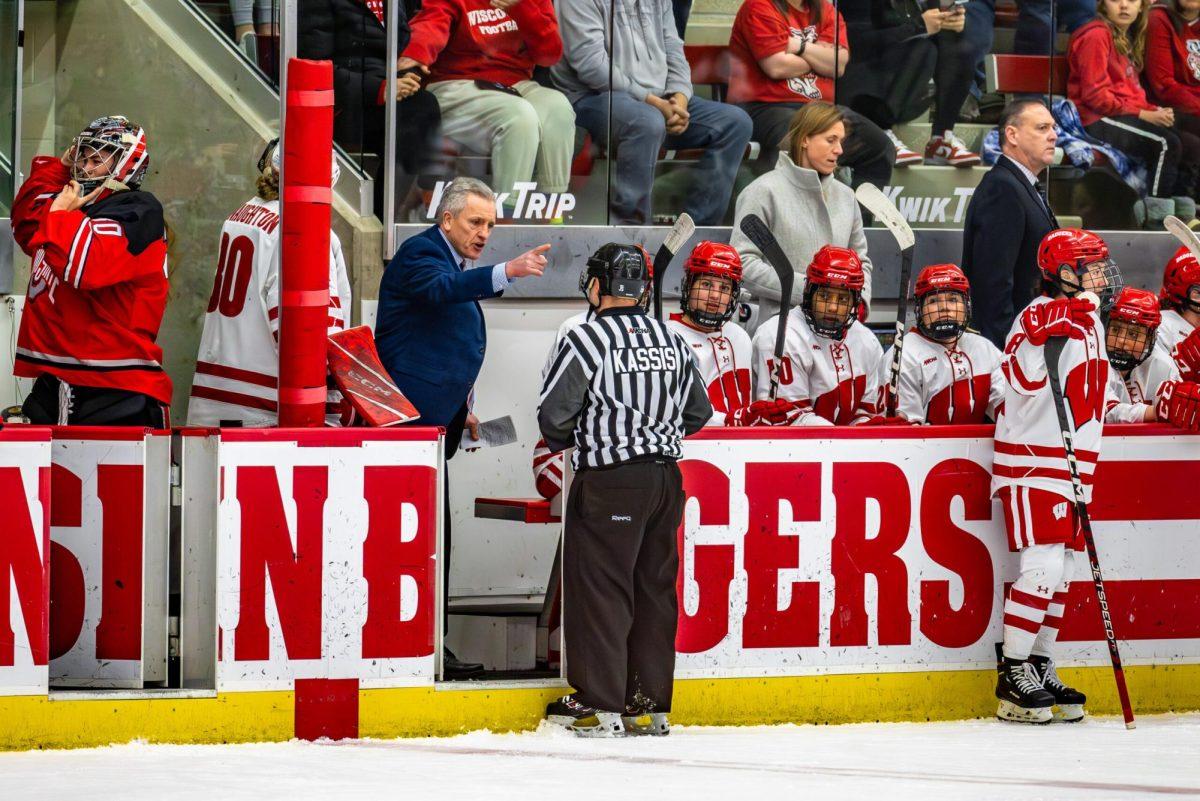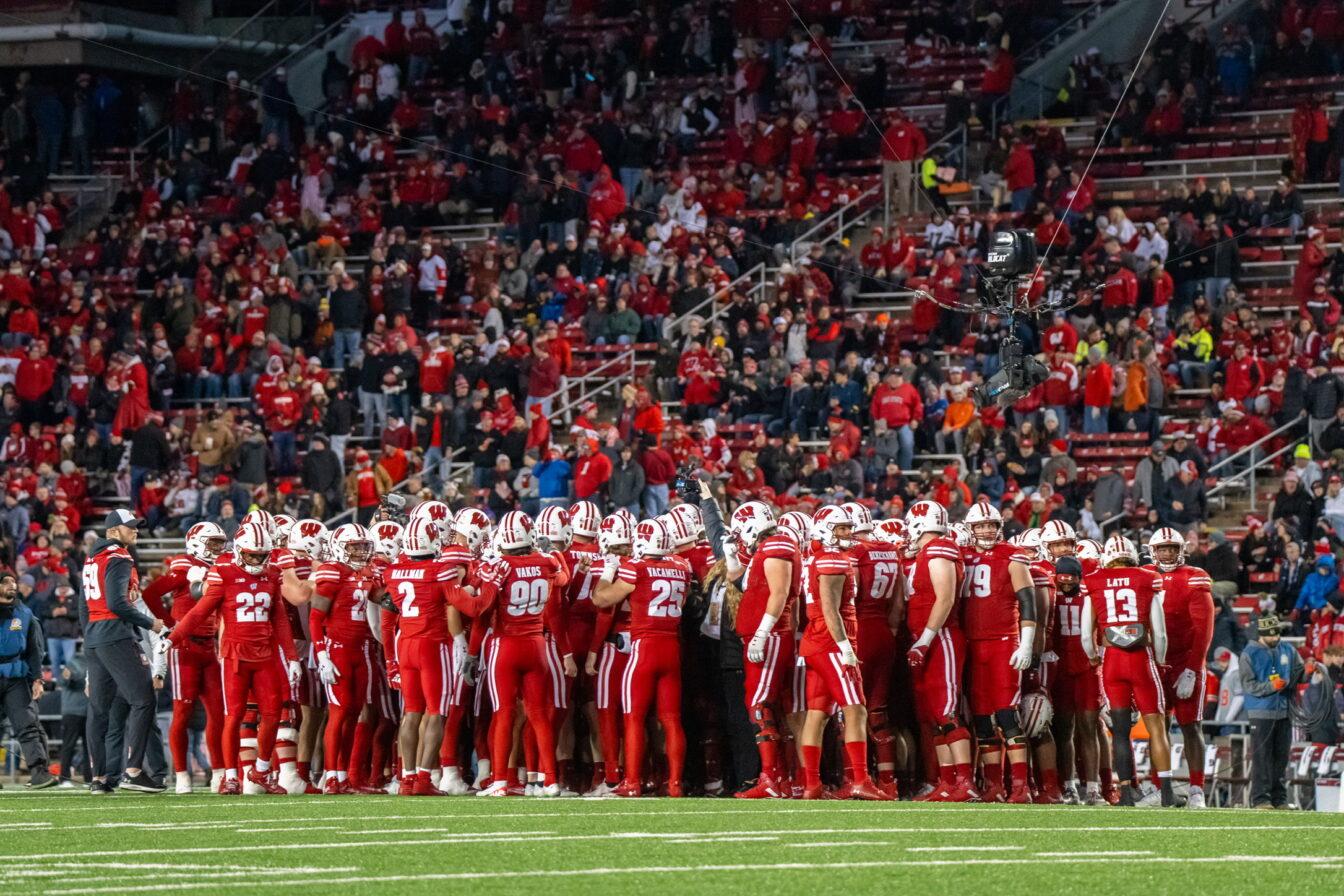Mike Krzyzewski is sitting in his office on a Sunday night, diligently pouring over the tape from Duke’s 98-88 win over Clemson on Saturday, when the telephone rings.
It is after midnight in Durham and Krzyzewski has had a long weekend. The Tigers had closed a 15-point gap and led by one late in the second half, threatening to upset the No. 1 Blue Devils. Later, he had to settle his bench after junior swingman Dahntay Jones mouthed off to Clemson coach Larry Sheyatt, inciting a mini-tantrum.
As the phone interrupts, Krzyzewski is wearily trying to put Saturday’s turbulence behind him and prepare for another intensity-charged game–he needs his team to rectify its only loss when it hosts Florida State Thursday.
He pauses the tape to answer the ring, and his mood shifts. It is Quin Snyder, Missouri’s third-year head coach and Krzyzewski’s former all-ACC point guard and associate head coach, calling to rehash Mizzou’s 81-77 win over No. 8 Virginia that afternoon.
Coach K. listens enthusiastically, his tiredness forgotten, and offers customary doses of advice, happy to assist his long-time student. Krzyzewski calls this the social foundation he credits for keeping the Duke program so strong since he began there in 1980.
According to Snyder, it is why Coach K.’s pupils have been able to receive and utilize his wisdom with such great success.
“I was debating whether or not to call him–I didn’t want to wake him up–but I really wanted to talk to him,” Snyder said. “And you could hear his voice when he came to the phone. He was really excited to talk to me.
“You can make a long list about the things he’s taught. The fact that he’s excited to talk to you in the middle of the season, because he cares about where you’re going, is the most telling example I can give about what he imparts to people.”
Ostensibly, Krzyzewski is ushering basketball into the 21st century. He is at the pinnacle of the sport, dictating its present and directing its future from atop the college game.
Not because the Blue Devils are 20-1 and ranked No. 1 unanimously in both polls. Not because last April, in the first year of the new millennium, he won his third national championship. But because Coach K. is currently at the head of the newest branch in college basketball’s mythical coaching lineage.
Including Snyder, eight of his former players or assistants have moved on to become college head coaches. Another 10 are Division I assistants. Counted among Krzyzewski’s disciples are Tommy Amaker, Bob Bender, Mike Brey, Mike Dement and Pat Harris.
Coach K. is not the beginning of the coaching tree in college basketball, a tangled web of overlapping geniuses bound together by influence folded over influence.
The all-time winningest coach and the only man with more NCAA tournament wins than Krzyzewski, Dean Smith begot, so to speak, a more voluminous and arguably more notable collection of coaches. And Smith’s own basketball ancestry includes Adolph Rupp and Phog Allen, who learned the game from James Naismith himself.
Krzyzewski is tied invariably to that royal heritage by one of his mentors: Henry Iba, linked to whom are Rupp, the great John Wooden and Bobby Knight, Krzyzewski’s college coach at Army and the father of his own line of highly successful coaches.
“A great institution”
But Coach K. and the Duke program have lately become the preeminent source of coaching prodigies. In the last few years, beginning with Amaker and followed by Snyder, it seems the Blue Devils bench has transformed into something like a placement program for the NCAA’s top openings.
“A lot of us have been fortunate enough to play for [Krzyzewski] and learn it from that side as a player and be part of a great program,” Amaker said. “I was very fortunate to stay on as an assistant and even learn more from a different perspective. A lot of guys get a lot of his qualities.”
Amaker began at Duke in 1983-84 as part of Coach K.’s first NCAA tournament team. With Amaker at point, the Blue Devils won an NCAA-record 37 games in 1986 and advanced to the national championship game. The following year, he was All-American and won the Iba Award as the nation’s top defensive player.
Fitting Krzyzewski’s mold as a player, Amaker moved in to replace the departing Bender in 1989, beginning the long practice of social and basketball loyalty Krzyzewski displays by supporting his former players’ careers. For the last seven years, Duke has featured an all-Blue Devil bench.
But the Cameron coaching pipeline was not so rapid then as it is now.
It took Amaker nine more seasons at Duke before Seton Hall offered him a job. Fairly instantly the Pirates were winners, attracting the top recruiting class in the country, and Amaker was termed the hottest young coach in the game.
Despite struggling through 2000-01, failing to gain an NCAA bid with a team that had supreme talent and too many egos, Amaker cashed in on his golden boy reputation and took an opportunity to rebuild another program fallen on hard times and moved to Michigan last year.
By then, Snyder had springboarded from Amaker’s old associate head coach role to the top spot at Missouri. He also followed in the man’s footsteps as Duke’s point guard and into the Final Four, earning a spot in Coach K’s pantheon of meteoric students.
Snyder took time to receive graduate degrees in law and business while assisting at Duke and a short stint in 1992 as a scout for the Los Angeles Clippers, and made a name for himself by recruiting Elton Brand.
Since joining the Tigers, Snyder has established three top-20 recruiting classes and 54 wins in less than three seasons at Missouri.
“Tommy and Quin have certainly proven themselves to be two top quality coaches,” Krzyzewski said. “I think everyone knew that they were quality people, and as a result the programs at Michigan and Missouri have benefited greatly from having them there.
“Certainly they’ve benefited from being at those two schools.”
Krzyzewski emphasizes being involved with quality environments and constantly drops Duke’s academic record as a reason kids are so eager to play for the Blue Devils. Snyder said it is impossible to count the things Coach K. imparts to his pupils, but one of them is certainly this attraction to top programs on and off the court.
By accepting the seat at Michigan, Amaker was borrowing a play from his mentor.
“[Coach K is] very competitive and he understands that he’s at a great institution,” Amaker said. “When you add all those ingredients together it’s a formula for success. I can speak for all the assistants–we try to emulate the things he’s been able to do.”
The next wave
Amaker admits, however, that Krzyzewski tends to foster his own formula for success. He encourages a discursive coaching environment, where the assistants can impart their own experiences to athletes and determine their own course.
This, partly, is what allows Duke’s system to evolve and flourish in different eras and different styles of basketball and for his protégés to succeed on their own.
“It helps to try to be who we are,” Amaker said. “And he’s the kind of person to always tell us to remain who we’re supposed to be and within our personality.”
“We try to give them the responsibility so they will have the full view of everything a head coach has to do,” Krzyzewski said. “Certainly the guys on my staff–Johnny [Dawkins], Chris Collins and Steve Wojciechowski–are all potential head coach candidates when the time comes and when they feel the need to do that. I’m lucky to have guys like that as I was lucky to have Quin and Tommy.”
So when will we see those faces standing and shouting on their own sidelines, the faces so familiar both as Blue Devils players and in the line of quintessential sitting black-suit clad assistants we see in Duke’s NCAA tournament games?
These are the faces destined to serve as members of Coach K.’s eternal legacy.
Dawkins is the old-school holdover. A member of Krzyzewski’s second true recruiting class, he predates Snyder or Amaker but had the fortune of continuing as a player for nine seasons in the NBA. As a consequence, he will have waited longer before gaining his head coach’s tie.
Already substituting for Krzyzewski in most pre-game and halftime interviews, and in that associate head coach job which has nearly served as a shuttle to top positions elsewhere, many believe Dawkins will be the next Duke assistant hired by another school.
Wojciechowski and Collins are practically infants in comparison but bear all the signs.
Wojo was the gutsy point guard whose energetic defense and pure love of the game nearly broke his back when he got tangled with Jamaal Magloire in a 1998 South Regional final game. Collins, the son of Washington Wizards coach Doug Collins, was a Duke captain and a former Seton Hall assistant under Amaker.
“They have a passion for the game and to teach,” Krzyzewski said. “They love to work in all aspects of the game. They’re very intelligent and passionate. Passionate intelligence, if directed to good causes, can produce amazing results and they have that.”
Snyder said the current Duke assistants will have to decide for themselves when they want to move on, at the same time affirming it was up to them. That is the sort of certainty Krzyzewski has presided over in Durham: The Blue Devils will win and the success will follow their coaches everywhere.
And Coach K. will be all the while watching tape, preparing for the next game.













